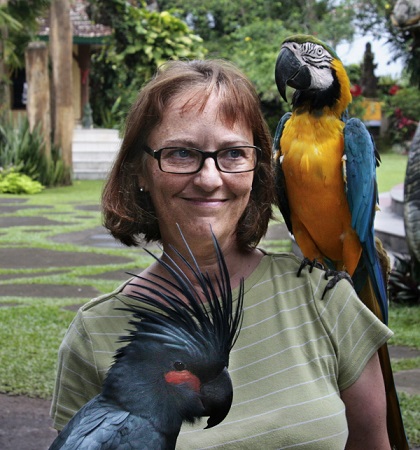
Curiosity, as Walt Disney explained, “keeps leading us down new paths. We’re always exploring and experimenting.” A fellow believer in the power of curiosity is adventurer-author and traveler Laurie McAndish King, who seldom turns down a trip into the unknown. Be it to a man-eating lake in Trinidad or to search for a 3-eyed cannibal in New Zealand, she is ready to pack her suitcase.
“It’s easy to get lost, frightened, or confused when you’re off the beaten path, but it’s also easy to be delighted, awe-struck, and crazy-in-love with the world.” Laurie McAndish King
We’ve gone down the road with Laurie twice on TWE with her previous books, Lost Kidnapped Eaten Alive and Your Crocodile Has Arrived. When we heard of her newest collection of true stories, An Elephant Ate My Arm, our curiosity of course was piqued…
EYE: Congrats on publishing the third book in your “Curious Traveler” series. Are you just as curious as ever? What keeps you searching for thought-provoking places and people to write about?
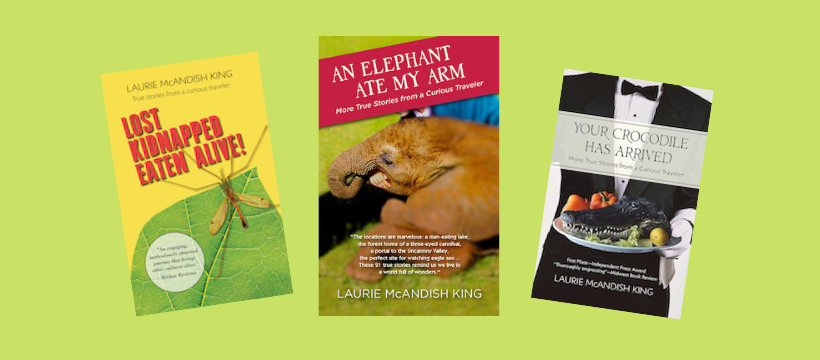
LAURIE: You bet. I’m as curious as ever! Dad was a scientist at heart and Mom loved philosophy, so curiosity is in my blood – there’s no escaping it. Not that I’d want to, because learning new things gives me a big dopamine rush.
On the island of Trinidad, I met a biologist who blew my mind with his critique of Western values. That’s my best example of following my curiosity, even though some of his insights made me very uncomfortable – and I’m still reeling, years later, from the experience. That story, “The Call of the Nightjar,” is in the new book.
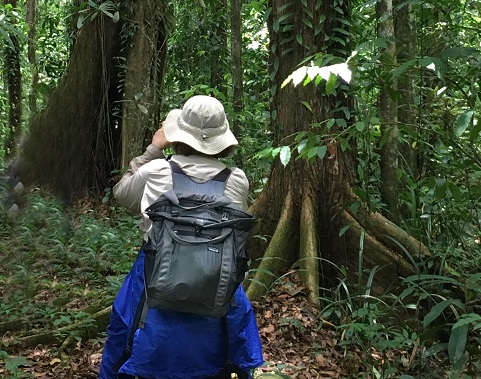
“The Call of the Nightjar”
EYE: You assembled An Elephant Ate My Arm during the months of COVID-19, which you say demanded a different approach. You mention in your forward that it was a “Year of Rabbit Holes.” How did it change the way you told your stories?
LAURIE: COVID slowed down the pace of life, and the emphasis on mortality helped me focus more intently on what’s really important. I think that’s been true for many people. As a writer, I welcomed the opportunity to go “down the rabbit hole” and think more deeply about events from the past that had been haunting my imagination.
I got in touch with stores that wanted to be told. Decelerating, feeling the weight of the pandemic, living with the ensuing social chaos, these disturbances ultimately helped me find greater meaning and craft stories in a more satisfying way.
EYE: Do you just wander into your stories or do you plan in advance? They seem to evolve when you are least expecting them to.
LAURIE: The most interesting stories usually develop on the spot, like the woman in Oxford who described the way shrunken heads are made (in “The Treatment of Dead Enemies”). I could never have anticipated that encounter.
Likewise, the experiences in “A Voyeur in Libya” were unplanned, but had a long-lasting impact on me, and that’s part of why the story works. It’s the same with “At the Foot on Uluru” – my sudden shift in perspective required a change in plans, which opened up a whole new world at Uluru (Ayers Rock) in Australia.
Two important components of story are change and dramatic tension, so it makes sense that unplanned events are often the ones that provide the most narrative power.
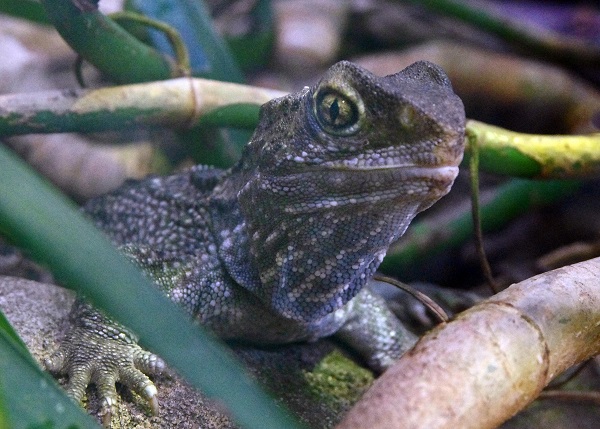
Photo Flickr by Paparazzi/Wikimedia Commons
EYE: You write about your walk on a man-eating lake in Trinidad, searching for a rare 3-eyed cannibal in New Zealand, coming upon a witch in a bottle in England…all travel experiences that conjure up possible calamity but turn out to be life-enhancing. What attracts you to these off-the-beaten-path trips?
LAURIE: Unusual locations attract me because of their “otherness.” Yes, it’s easy to get lost, frightened, or confused when you’re off the beaten path, but it’s also easy to be delighted, awe-struck, and crazy-in-love with the world. Travel gives you new ways to experience life – that’s one of its gifts.
It took a little doing to even get entrance visas for Libya and Cuba, which was part of their attraction. And the man-eating lake in Trinidad was quite a drive from the place I was visiting, but once I heard about it, I was determined to see it.
EYE: You put your hand into 5-month-old Rastus’ mouth – a 340 pound elephant in Zimbabwe – and rode 6-year-old Janet. What did you take away from those experiences?
LAURIE: I bonded with baby Rastus – he was adorable! The whole episode at the elephant orphanage in Zimbabwe got me thinking, and writing, about the elephants who were “giving rides” to tourists, about the fact we are domesticating elephants, and about our relationship and responsibilities to other living beings.
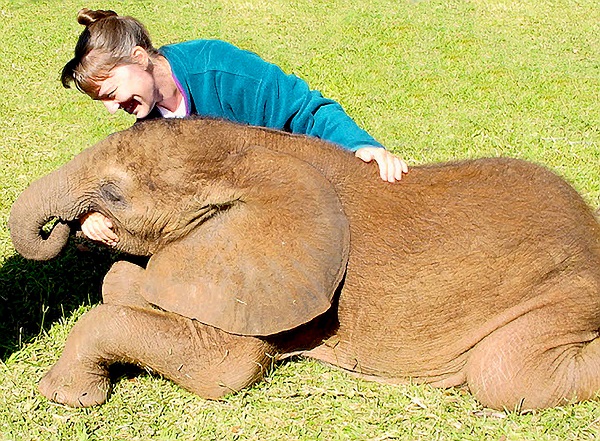
Photo: James E. King
I’m not sure I came to a definitive ethical conclusion, but I did develop a strong emotional connection with the elephants, which was a wonderful take-away.
EYE: Is there something about travel that should be less planned and just allowed to happen?
LAURIE: I used to work for a travel company, and have enjoyed many well-planned trips to exotic locations – but I rarely get an interesting story out of them. It’s the chance encounter; the unexpectedly breathtaking scenery or charming folk art, the odd, overheard quote…that’s where the fun is, and where the story-magic happens.
EYE: Is it important to have a purpose when you travel?
LAURIE: Having a purpose gives you some initial direction, and is a quick trick for focusing your pre-trip research. You can hone in on the best places to participate in your favorite activity, whether it’s learning to cook the local pasta, handling birds of prey, dancing, touring a winery, going fishing, or tracking down oddities. When I was researching Oxford, I learned it was home to a witch in a bottle. I had to put that on the itinerary.
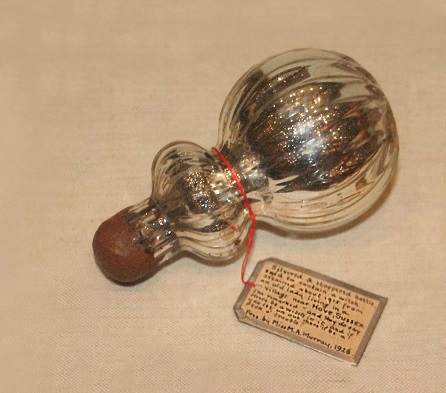
the Witch in a Bottle”
It’s fine, though, to let go of your original goal if something shiny (a person, a story, or even just an odd factoid) grabs your attention. When you happen to learn that Barbie (the doll) would be 5’9″ and wear a size 3 shoe in real life, or how to tell a genuine shrunken head from a counterfeit one, or that olive oil wrestling is the world’s oldest documented sporting event – well, how can you not write about things like that?
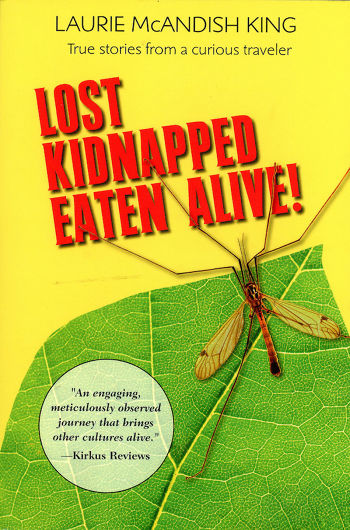
EYE: You publish your books through your own company. Tell me about writing and assembling them for those readers who think about independent publishing. Would you recommend it?
LAURIE: As an indie publisher, you’re responsible for every aspect of the book, from writing, editing, and proofing to design, production, and promotion. If you aren’t an expert at all those things, it’s your job to find partners who are. The result – active participation as your book comes together – is a real thrill. I absolutely recommend it.
EYE: What are the challenges of independent publishing? The rewards?
LAURIE: There’s a lot to learn, and there are sometimes technical challenges that are out of your control (for example, when my book got listed on Amazon as a “large type” edition, even though it isn’t. Argh! It took three months to get that fixed.) The rewards overshadow the challenges, though.
It’s exhilarating to be able to tell your stories in your own way, and then get your book out into the world; indie publishing makes that possible.
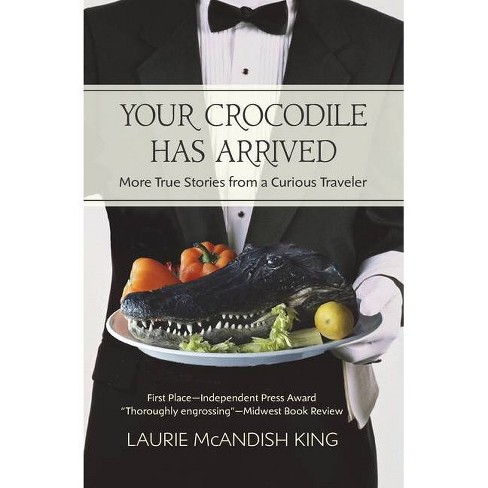
EYE: How long is the process from start to finish? Do you do it in stages?
LAURIE: Writing and editing take the longest. For me, that process requires at least a year and a half – and yes, I work in stages. Putting a book together and making it available with print-on-demand technology takes only a few weeks, it you’re organized and it isn’t your first time. But I suggest allowing up to three months for the publishing stage.
EYE: When will you start to work on another “Curious Traveler” book? Do you have an idea about what you want to cover or will your journeys just evolve?
LAURIE: I’m already working on the next book, which includes stories about swimming with crocodiles in Australia, climbing hundreds of rickety stairs to the summit of a 660-foot-high monolith in Sri Lanka – to see the ancient frescoes of bare-breasted maidens at the top – and tracking down remnants of Scotland’s mysterious Pictish civilization.
EYE: After uncovering myths of the Mayflower and visiting the Park of the Fallen Heroes, where do you hope to go next? What will you be searching for?
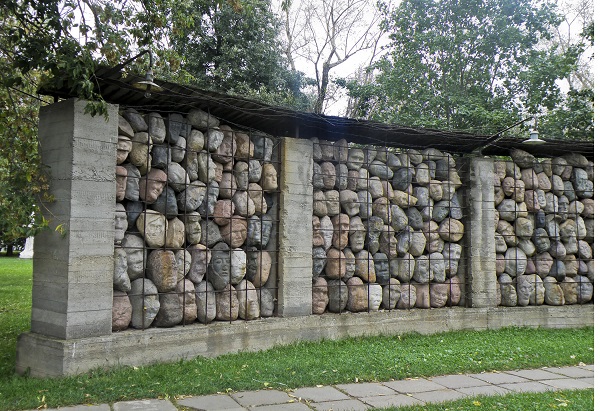
in Moscow’s “Park of the Fallen Heroes”
LAURIE: Those stories, which take place in Plymouth, England, and in Moscow, taught me things that are surprisingly relevant in the U.S. today. Writing the Mayflower story opened my eyes to inconvenient truths about our country’s founding, and visiting the Park of the Fallen Heroes reminded me there are creative ways to address what seem like interminable problems here at home.
What will I be searching for next? The unexpected, which is often right in front of me. A new flavor, a surprising historical fact, a person whose life experience is remarkably different from my own…we live in a world full of stories.
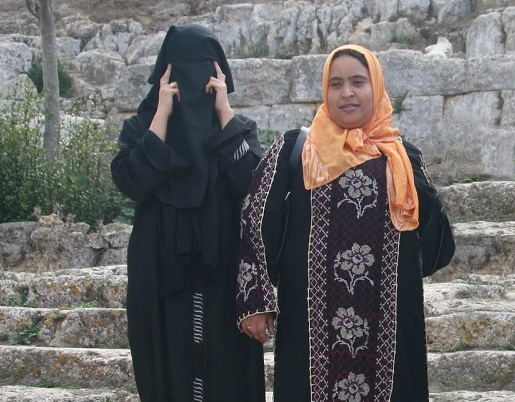
differing views on wearing the hijab
EYE: Is making connections one of your goals?
LAURIE: I love landscapes, plants and animals, and museums – but it’s connections with local people that bring a place into focus for me. And I’m not alone in that. I’ve spoken with hundreds of travelers, and here’s the one thing they have in common: Their most memorable trips are ones on which they connected deeply with others.
It isn’t simply surface-level connecting, though. Learning about another person’s perspective, understanding their concerns, empathizing with their feelings – these are the experiences that make a trip memorable.
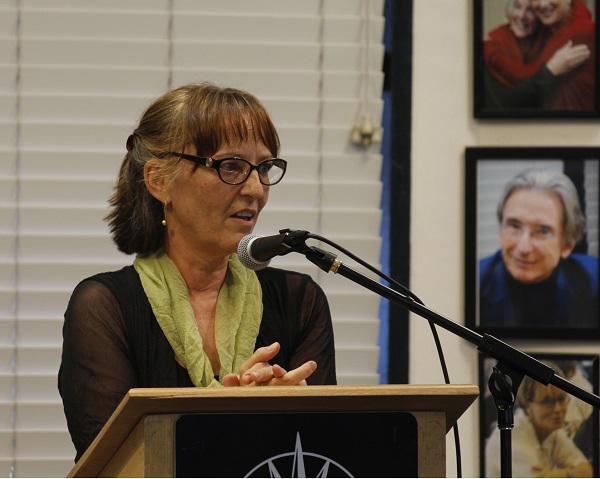
EYE: What advice can you give our readers about how to get the most out of their travels? What can make their journeys possibly change the way they look at the world?
LAURIE: Avoid big groups. That doesn’t mean avoiding group travel – just be sure you schedule in some time on your own for exploring, getting lost, striking up a conversation, sampling street food…actually connecting with people you aren’t traveling with. Because yes, making connections is important.
Be willing to experience discomfort, whether it involves getting up early and standing in the snow for hours or trudging through a hot, humid jungle – you’re sure to see things other, less intrepid, travelers will miss out on.
Keep an open mind. In “Tears and Tiramisu” I allowed for the possibility of an unseen psychic world, and it resulted in a mind-bending experience when a masseuse from halfway around the globe told me things about myself that she “shouldn’t” have known.
But remember you don’t have to go to the most remote places on Earth to uncover fascinating surprises. I found the strangest of creatures – a 3-eyed cannibal – at a wildlife park just a few minutes from downtown Wellington, New Zealand.
Most important: Embrace your curiosity! It’s a life-long pursuit to hone your attention and imagination into a travelers’ mindset, in which everything around you is fresh, mysterious, and potentially awe-inspiring. That approach can be almost like a spiritual practice in the way it enriches your day-to-day life at home, as well as your travels.
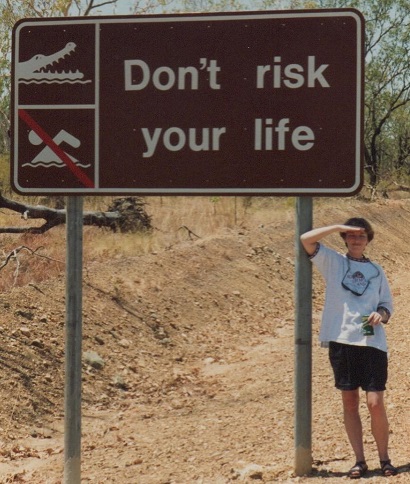
Finally let me say a word about giving the most out of your trip. The world is small and interconnected; we can’t help but change a place by having been there.
Traveling is an opportunity to leave traces of the best of yourself – your curiosity, participation, admiration, respect, generosity, and loving kindness – wherever you might go.
EYE: Thanks, Laurie! You inspire us to take adventures to the “otherness” where we might never go. Can’t wait to see that “Witch in a Bottle.”
I have to witness her with my own eyes. Happy next adventures! We look forward to reading about them!
TOP PHOTO: Laurie McAndish King with parrots in Bali | Credit: JM Shubin
PHOTOS NOT CREDITED: Courtesy Laurie McAndish King
For more about Laurie:
- Website: LaurieMcandishKing.com
- Facebook: @LaurieMcandishKingWriter
- LinkedIn: @lauriemcandishking
Some links in this post may be “affiliate links,” meaning TWE receives a small commission (at no extra cost to you) if you use that link to make a purchase.
Be sure to check out more true stories from author and traveler Laurie McAndish King in this podcast with TWE host Stacey Gualandi:


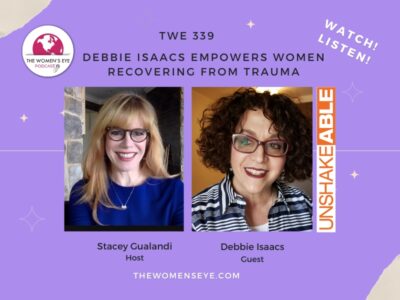
Leave a Reply